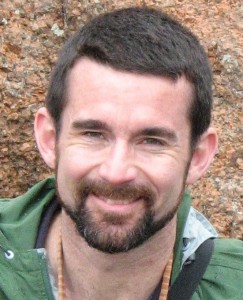 The recently publicized news that the American Psychological Association (APA) “colluded” with US governmental agencies to create ethical guidelines permitting psychologists to participate in “harsh interrogations” of military detainees is appalling. According to the APA’s own press release, the guidelines were “based at least as much on the desires of the US Department of Defense as on the needs of the psychology profession and the APA’s commitment to human rights.” While appropriate kudos are due to the APA for having the courage to both commission the recent investigation of its ethical practices, and to publicize the results, the sad circumstances that led to those ethical lapses point to a clear need for robust understandings of professionalism and ethics.
The recently publicized news that the American Psychological Association (APA) “colluded” with US governmental agencies to create ethical guidelines permitting psychologists to participate in “harsh interrogations” of military detainees is appalling. According to the APA’s own press release, the guidelines were “based at least as much on the desires of the US Department of Defense as on the needs of the psychology profession and the APA’s commitment to human rights.” While appropriate kudos are due to the APA for having the courage to both commission the recent investigation of its ethical practices, and to publicize the results, the sad circumstances that led to those ethical lapses point to a clear need for robust understandings of professionalism and ethics.
A 2009 BMJ analysis of the differences between the physicians and psychologists in ethical policies concerning interrogation of detainees suggests that one (of many) reasons for the divergence may be the relative ages of the professions:
“Without the centuries of teachings, traditions, and shared identity as an independent profession, a newer profession might more easily comply with the demands of government.”
Professionals without an understanding of identity rooted in some sense of history and tradition will simply become technicians applying the tools of their trade to meet the ever changing demands of the day. While some might say that an ethics overly reliant on history will only answer yesterday’s questions, we fail in our obligations to be professional if we only use ethics to justify the answers we have already given to the questions of the day.
A helpful principle in this area was articulated by the Christian theologian Karl Barth:
“Take your Bible and take your newspaper, and read both. But interpret newspapers from your Bible.”
We need to understand the wisdom and principles of our tradition, and we need to understand the questions of the day, but it is our wisdom and principles that must guide our response to today’s challenges, and not vice versa.
Much could be written about the relative insights of different schools of ethical thought and different traditions in medicine, and even more about the relative impacts on ethical understanding of cultural context and religious belief or opinion. (These are all important questions, but this is a blog, and not a dissertation or book series!) The important point, however, is that the multiple and perhaps even conflicting sources of wisdom and insight do not make wisdom and tradition irrelevant or unimportant, instead they make understanding and grappling with traditions and wisdom all the more vital. We need to understand our identity, in order to know what to do.
A 2005 article in Academic Medicine surveyed the then current state of medical ethics education, and called for: “further theoretical work aimed at better delineating the core content, core processes, and core skills relevant to the ethical practice of medicine.”
I would argue that one basic but important piece of this puzzle is that each medical professional needs a clear understanding of the principles and ideals that inform his or her own understanding of professional identity and purpose.
For myself, as a practising Christian working in modern medicine, some of these guiding principles include the biblical insights that one should “love your neighbor as yourself” (Mark 12:31) and that true religion is “to look after orphans and widows in their distress.” (James 1:27). Also important is the familiar aphorism from Edward Trudeau that the purpose of medicine is “to cure sometimes, to relieve often, to comfort always.” And last but most certainly not least, there is the insight from Dave Sackett that “evidence based medicine is the conscientious, explicit, and judicious use of current best evidence in making decisions about the care of individual patients.”
As professionals, we all seek some degree of comfort in the perceived safety of the crowd—we do what others do, because if others do it, then it must be appropriate. Arguing that something is the “standard of care” is nothing more than seeking safety in doing what is currently conventional. At the same time, however, there is a need to understand what the “crowd” who has gone before has done—we need to understand tradition and the wisdom of those who have trod the same path and worn the same shoes in ages past.
It has been said that “Where there is no vision, the people perish” (Proverbs 29:18), and we can say today that where there is no sense of ethics rooted in professional history, tradition, and wisdom, the profession loses its identity.
William E Cayley Jr practices at the Augusta Family Medicine Clinic; teaches at the Eau Claire Family Medicine Residency; and is a professor at the University of Wisconsin, Department of Family Medicine.
Competing interests: “I declare that I have read and understood the BMJ Group policy on declaration of interests and I have no relevant interests to declare.”
